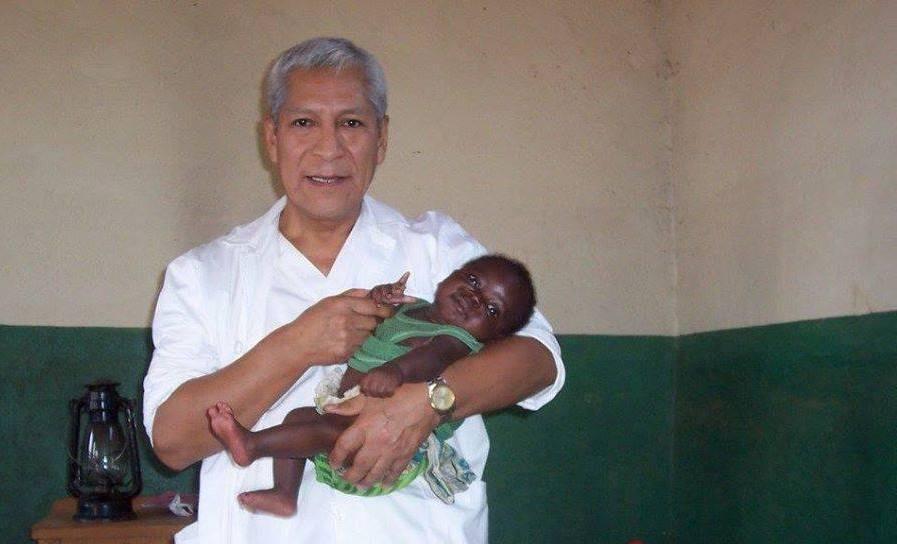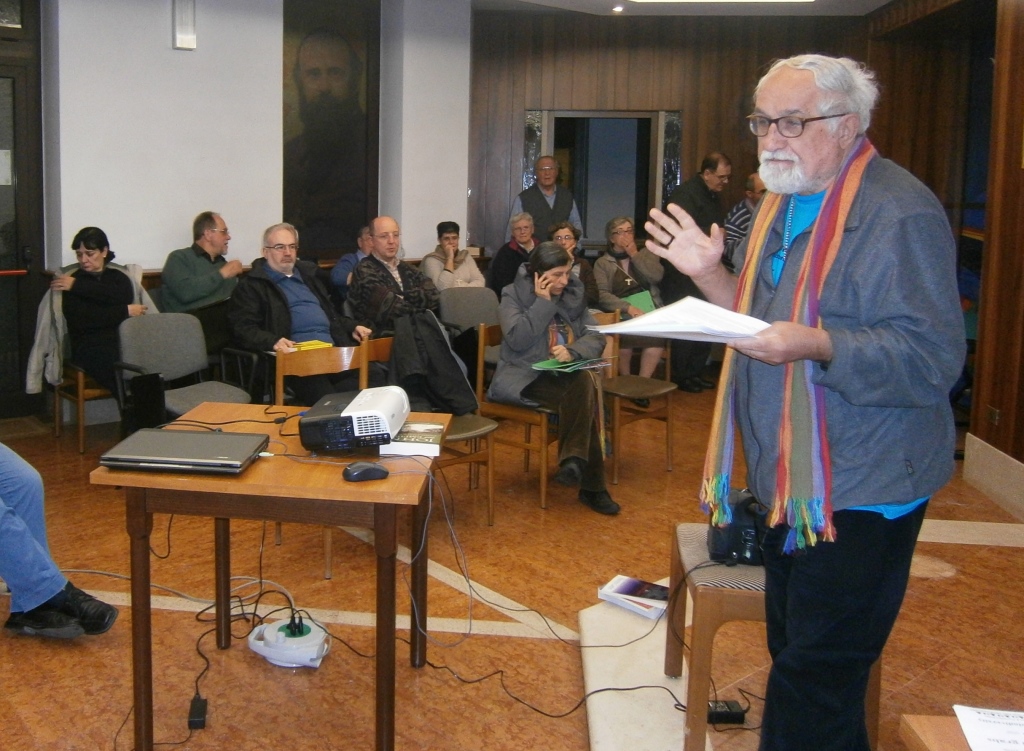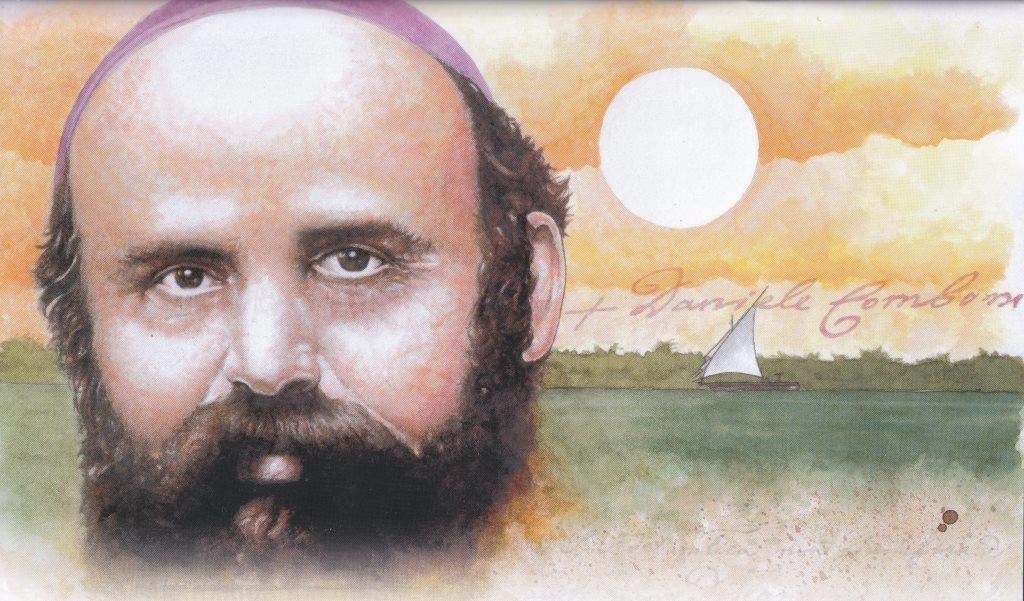Daniel Comboni
Comboni Missionaries
Institutional area
Other links
Newsletter
Monday, February 21, 2022
At the end of a challenging, exciting and fruitful journey that has lasted almost three years, the purpose of this Synthesis Report is to present some of the results achieved, share some of the knots that need to be untangled, and propose several recommendations that we think will be useful in giving continuity to this process. [See attachment].
We are mission
Social Ministry as dimension of evangelization
in Comboni family
Summary Report
“The rich and the poor, the healthy and the sick, the young and the old,
the master and the servant will always have equal access to my heart.
I make common cause with each of you, and the happiest of my days
will be the one in which I can give my life for you.”!
Saint Daniel Comboni – Homily of Khartoum
Foreword: a journey coming from afar
The social dimension of life has always been an identifying characteristic of the Church and is a foundational part of Evangelization. As Pope Francis reminds us, “...if this dimension is not duly made explicit, there is always the risk of disfiguring the authentic and integral meaning of the evangelizing mission.” (EG no. 176)
Social Ministry is primarily expressed in the following services:
• Charity and the caring for the impoverished and the marginalized;
• Convocation of all ecclesial, social, political, economic and cultural forces interacting around a project that promotes life in abundance, as well as the dignity of every person, for the realization of a different world: supportive, inclusive and fraternal;
• Proclamation of the Values of the Kingdom of God;
• Denunciation of injustices for a culture of peace, justice and safeguarding of creation (JPIC).
During the past 30 years, following the Orientations of the Second Vatican Council, the Social Doctrine of the Church (SDC) and the reading of the signs of the times, the Comboni Family – together with many other movements and associations – has taken at heart the service of Convocation for advocacy. This was carried out without neglecting Charity – which remains the predominant service – nor the Proclamation of the Values of the Kingdom, nor the Denunciation of the injustices and of the waste-culture that humiliate the life of billions of people. The latter of these, however, is still somehow weak and reticent in the ranks of our awareness and praxis.
Numerous initiatives and activities promoted in recent years demonstrate this pattern. First of all, the founding of the Institute of Social Ministry in Mission in Nairobi in 1994, which took place at the same time of the Special Assembly of Bishops for Africa; but also the appointment of the general coordinator of JPIC, the late Fr. Anton Mayer, on the occasion of the Jubilee of 2000. The same can be stated regarding various initiatives in our individual Institutes. For example, the event of the Symposium on the Regeneration of Africa and the Rules of 1871, organized by the Comboni Sisters in Verona, in 2013.
There have also been further ways of widening the circle of our participation in the various paths aimed at creating unity of intent among various ecclesial entities. Some of these are: the adherence to inter-congregational organizations such as: Africa Europe Faith and Justice Network (AEFJN) and to VIVAT International; the birth of groups focused on reflection and pastoral dimensions, such as: Missionary Reflections in English speaking Africa, and the European Group for Theological Reflection (GERT).
In these same years, a number of specific pastoral ministries have been organized on a continental, and, at times, intercontinental level. For instance: the pastoral groups in favor of Human Rights; the pastoral care of the landless and homeless, with prophetic acts even to the point of martyrdom, such as that of Fr. Ezekiel Ramin. Furthermore, we organized pastoral work that promoted Interreligious Dialogue, especially with Islam; pastoral work among nomadic peoples and on the outskirts of large cities; pastoral work among Indigenous Peoples, Minority groups and Afro-descendant People, with the presence and sharing of life and vision, as experienced by Fr. Ettore Frisotti. Also, the fight against human trafficking, with the commitment of many of our Comboni Sisters (Talitha Kum) and the pastoral care of Migrant People; the defense of our Common Home against extractive companies; the commitment to change lifestyles and the promotion of ecological conversion.
The participation in the World Social Forums, which was realized hand in hand with so many Popular Movements – committed like us to the building of an alternative-solidarity-based world: (Nairobi - 2007; Belèm - 2009; Dakar - 2011; Rio de Janeiro - 2012, on the issue of water; Tunis – 2013 and 2015; Montréal - 2016; Salvador de Bahia - 2018) – has been the red thread allowing our Comboni Family to keep alive the attention towards the social movements. These, from the grassroots, elaborate an alternative project to the liberal system, which oppresses and excludes billions of impoverished people. In addition, we have interacted with local and continental associations to start processes and concrete initiatives of change, so that the God’s kingdom may become visible among the people.
This entire journey has been documented in the book “Be the change you wish to see in the world” (Comboni Family, Comboni Network, 2018). In a more specific manner, our commitment as Comboni Family has acquired officiality and a programmatic perspective with the decision of our General Administrations to appoint, in June 2019, a specific Commission whose members were: Fr. Daniele Moschetti, Sr. Hélène Israël Soloumta Kamkôl, Mr. Marco Piccione, Sr. Maria Teresa Ratti, Fr. Fernando Zolli.
The team was asked to oversee the reliability of some objectives and the realization of some tasks:
Objectives:
• To map all the social ministerial activities of the Comboni Family
• T elaborate criteria, methods and common principles in the existing experiences of collaboration by framing them in an institutional perspective.
• To evaluate how the various ministries have a socially transforming impact on reality and how our ministerial presence responds to the needs underlined by the signs of the times.
Tasks:
• To publish the second volume, “Be the Change You Want to See in the World”, which describes what already exists in the field of collaborative ministry and recounts some life experiences. This publication could be a training tool for the 2020 Comboni Forum.
• To organize the participation in the 2020 World Social Forum, along with the event of the Comboni Family Forum, which could last 5 days.
At the end of an almost three-year-long challenging, exciting and fruitful journey, the Commission is happy to present this report to the General Administrations of the Comboni Family. We also do this on behalf of the various collaborators called upon by the Commission itself: Fr. Domenico Guarino, Bro. Alberto Parise, Fr. Joseph Mumbere Musaga, Fr. Fernando González Galarza, Fr. Arlindo Ferreira Pinto, Teresa Zenere. Attached to this synthesis, please find the minutes of more than 30 meetings the Commission carried out from 2018 to 2021. We encourage to visit the official websites of the Comboni Family and to familiarize with the abundant documentation of the journey carried out in its diversified modalities.
At this point, a special mention concerns the presence and contribution throughout our journey of Sr. Ida Colombo and of Bro. Alberto Lamana. We have truly appreciated their dedication and we hope that they will continue to serve as spokespersons in their respective General Councils.
The purpose of this Synthesis is to present some of the results achieved along the way, share some of the knots that need to be untangled, and propose several recommendations we think will be useful in giving continuity to this process in the future.
We are all aware that the Covid19 pandemic has not allowed us to accomplish to the letter what had been requested of us. At the same time, we recognize that this emergency has pushed us to search and discover new ways in order to keep alive the initial vision. By so doing, a broader participation of confreres, sisters, consecrated seculars and laity has made its way on our journey. We have also witnessed a growing in communion among us as one family. We saw the fire of mission grow warmer among us, where people excluded and marginalized in our interconnected world, become the true protagonists of transformation.
Father Daniele Moschetti MCCJ
Sister Hélène Israël Soloumta Kamkôl SMC
Mister Marco Piccione LMC
Sister M. Teresa Ratti SMC
Father Fernando Zolli MCCJ
Synthesis Report on Social Ministry and Evangelization in the CF_EN
Reporte sintético sobre la pastoral social y la evangelización en la FC_ES
Rapport de synthèse sur la ministérialité sociale comme dimension de l’évangélisation dans la FC
Rapporto di sintesi sulla ministerialità sociale come dimensione dell’evangelizzazione nella Famiglia Comboniana




